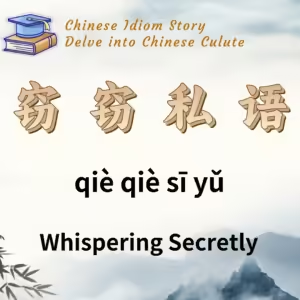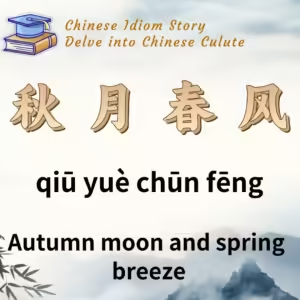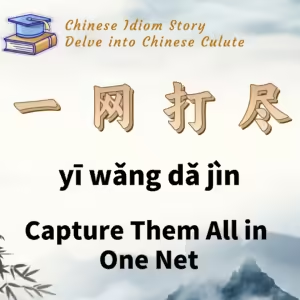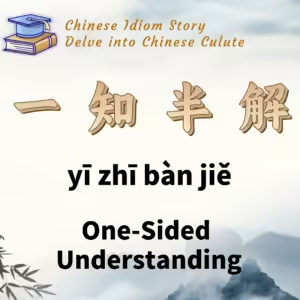
Chinese Idiom: 窃窃私语 (Qie Qie Si Yu)
English Translation: Whispering Secretly
pīn yīn: qiè qiè sī yǔ
Idiom Meaning: This idiom describes the act of conversing quietly and secretly, often about private matters.
Historical Source: The Lute Song (唐代白居易《琵琶行》)
Idiom Story:
In the tenth year of the Yuanhe period during the Tang dynasty (A.D. 815), a tragic event unfolded when Prime Minister Wu Yuanheng was assassinated by the local warlords Wang Chengzong and Li Shidao. Later that day, Bai Juyi, the prince’s official, submitted a memorial to the emperor, requesting the capture of the culprits. Unfortunately, the emperor, misled by the treacherous advisor Li Jifu, demoted Bai Juyi to a post as a secretary in Jiangzhou, 4,000 li away from the capital.
Jiangzhou, located along the Yangtze River and near Lushan Mountain, became a place of solitude for Bai Juyi. His new residence, situated outside the western city gate, was damp and desolate, intensifying his feelings of melancholy and homesickness. Often, he would reminisce about his friends in Chang’an, particularly his close companion, Yuan Zhen, who had also been demoted to Tongzhou.
In the autumn of the following year, Yuan Zhen finally visited Bai Juyi in Jiangzhou. Overjoyed to reunite after a long separation, Bai Juyi arranged a farewell banquet as Yuan Zhen prepared to leave that evening. However, under the cold autumn moonlight, the joy of their reunion was overshadowed by the sadness of parting. Just as Bai Juyi was about to disembark, he was captivated by the haunting sound of a pipa (a traditional Chinese string instrument) drifting across the river.
Curious, he asked the boatman who was playing. The boatman replied that it was Pei Xingnu, the wife of a musician from the capital. When Bai Juyi met Pei Xingnu, a weary and aged woman, he learned of her unfortunate fate: once a talented musician, she had been summoned to the palace, only to endure humiliation and neglect, eventually ending up in Jiangzhou.
Moved by her story, Bai Juyi couldn’t help but compare their situations. He felt a deep connection with Pei Xingnu, both having suffered from political misfortunes. That night, he returned home, his mind echoing with her tragic words and the pipa’s melody, leading him to compose the famous poem “The Lute Song” (琵琶行).
Within the poem, he writes of the contrasting sounds of the pipa: “The big strings sound like heavy rain, while the small strings whisper like secret conversations.” This description of the small strings, “切切如私语,” later gave rise to the idiom “窃窃私语,” which captures the essence of whispering intimately and secretly.






